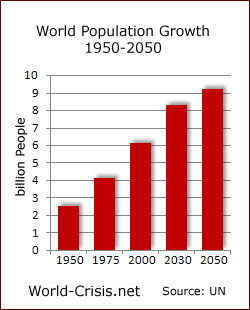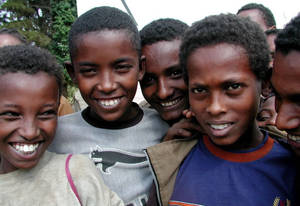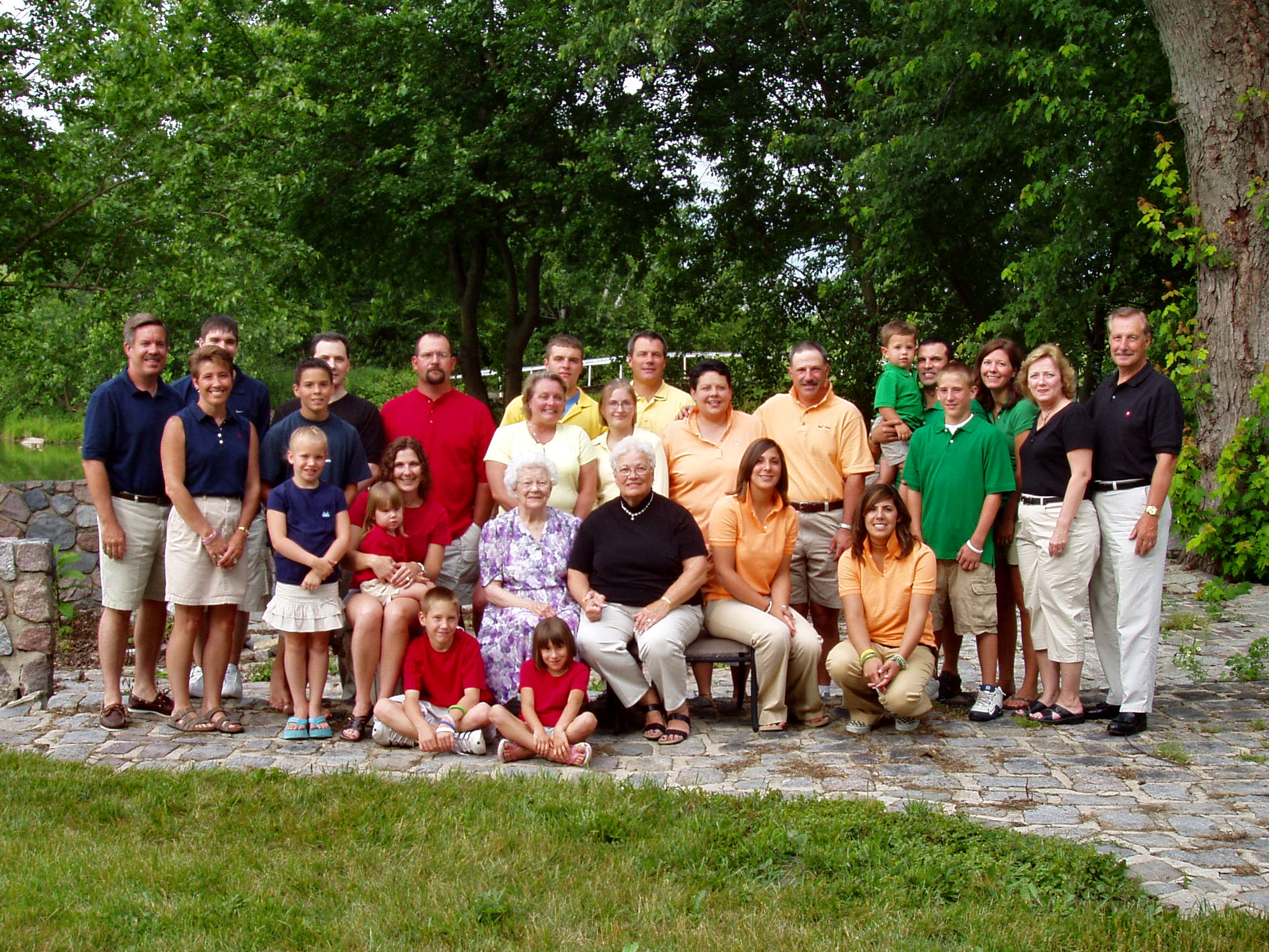The Population Institute
Interview with
Bill - Population institute works with leadership groups to educate them and involve the in population issues. Population in many ways is the unmentioned elephant in the living room of global sustainability issues. The institute is there to remind people that 6.7 billion people growing to 9.2 billion people in a short 50 years is a huge factor in all of the issues that the planet is facing.
Ben - How big really is the elephant? How fast is the world's population expanding?
 Bill - There are many ways to answer that question. You can say one per cent. People say one per cent doesn't sound very much, I earn more than that on my money market funds. On the other hand 1 per cent means the population's doubling every 70 years. When you have such a huge population: now four times what it was a century ago and it doubles in just 70 years the impact is huge in terms of planetary resources. Population is a driver of almost everything else with regard to both environmental and food security and international security issues.
Bill - There are many ways to answer that question. You can say one per cent. People say one per cent doesn't sound very much, I earn more than that on my money market funds. On the other hand 1 per cent means the population's doubling every 70 years. When you have such a huge population: now four times what it was a century ago and it doubles in just 70 years the impact is huge in terms of planetary resources. Population is a driver of almost everything else with regard to both environmental and food security and international security issues.
Ben - What can be done about the rising rate of growing populations?
Bill - One of the key barriers to solving the population problem has to do with perceptions by people and information or misinformation that they may have. For example, among the roughly 130 million couples who don't want to have additional children and are not using contraception maybe 2% give lack of access to services as their reason for non-use of contraception. The primary reasons are they've heard it's dangerous, they've no idea that having 10 children starting at age 15 is far more dangerous. They also cite male opposition. They think their husbands or partners oppose. They think their religion is opposed.  It may come as a surprise to listeners but there's no religion that is opposed to planning one's family or to planning one's life. No religion is telling their followers to have more children than they can afford to feed or care for. Religious opposition is something that people mistakenly believe is a factor and also fatalism. Many women, when asked how many children they want, say, 'I want no more than I currently have because I can't feed the ones I have.' Then they're asked do you understand that because you're not using family planning that you could become pregnant and have another child. Then they'll say, 'that'll be ok because if that's god's will then that's why I'm here.' It's as if god, at the beginning of the universe, has decided how many children they're going to have. Changing those cultural and informational barriers to family planning use is critically important. How do we do that? We're role modelling small family norms, use of family planning, elevation of women's status, daughter education and similar measures through long-running, serialised melodramas. Let's call them soap operas for social change. These programmes, which will go on for months and years, can create characters who
It may come as a surprise to listeners but there's no religion that is opposed to planning one's family or to planning one's life. No religion is telling their followers to have more children than they can afford to feed or care for. Religious opposition is something that people mistakenly believe is a factor and also fatalism. Many women, when asked how many children they want, say, 'I want no more than I currently have because I can't feed the ones I have.' Then they're asked do you understand that because you're not using family planning that you could become pregnant and have another child. Then they'll say, 'that'll be ok because if that's god's will then that's why I'm here.' It's as if god, at the beginning of the universe, has decided how many children they're going to have. Changing those cultural and informational barriers to family planning use is critically important. How do we do that? We're role modelling small family norms, use of family planning, elevation of women's status, daughter education and similar measures through long-running, serialised melodramas. Let's call them soap operas for social change. These programmes, which will go on for months and years, can create characters who  ultimately find their way to a new set of values, new behaviours. They realise in front of massive audiences the benefits of those behaviours and they change social norms. Among the roughly 50% of married women in Ethiopia who are listening to one of our serial dramas there was a tripling of family planning use. Similarly we measured a quadrupling of HIV testing in male listeners and a tripling among female listeners. So these programmes can be very influential, particularly if they're well-written, if they attract huge audiences episode after episode and follow the evolution of these characters, see the benefits for these characters and decide without ever being told what to do that indeed this is a strategy they should try.
ultimately find their way to a new set of values, new behaviours. They realise in front of massive audiences the benefits of those behaviours and they change social norms. Among the roughly 50% of married women in Ethiopia who are listening to one of our serial dramas there was a tripling of family planning use. Similarly we measured a quadrupling of HIV testing in male listeners and a tripling among female listeners. So these programmes can be very influential, particularly if they're well-written, if they attract huge audiences episode after episode and follow the evolution of these characters, see the benefits for these characters and decide without ever being told what to do that indeed this is a strategy they should try.
- Previous Do Your Friends Make you Fat?
- Next The Global Media Awards









Comments
Add a comment